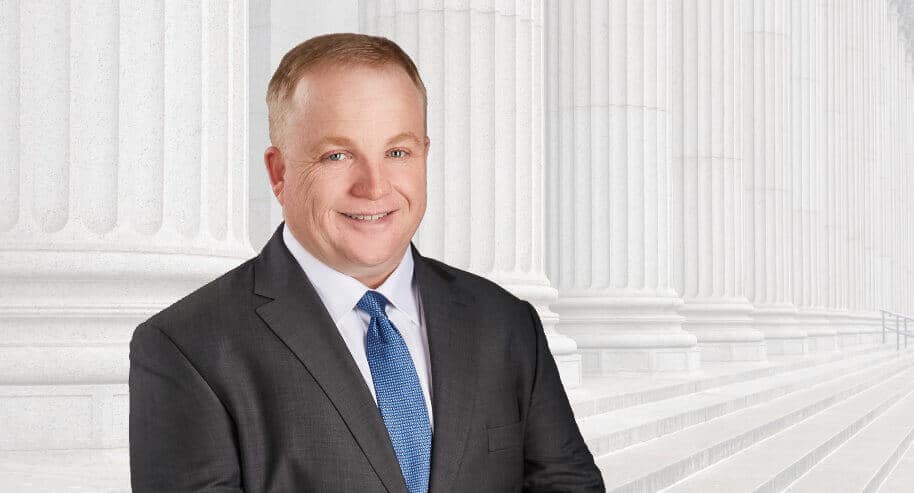
Child custody issues can get contentious fast. When parents are separated or divorced, they often need the court to step in and find a solution that is in the best interests of the child.
If you’re facing a child custody issue in Wake County Family Court, you need to speak with a Raleigh child custody lawyer right away. With over two decades of experience in local courts, Breeden Law Office has helped countless people in your situation.
Call us today at (919) 480-8005 or use our online contact form to reach out to an experienced family attorney in Raleigh, North Carolina.
The court considers many factors when considering who gets custody of a child in North Carolina. Let an attorney explain how you can gain child custody rights.
North Carolina law covers a wide range of custody and visitation topics, but it can be challenging to understand the complicated legal concepts that govern these issues. A dedicated Raleigh child custody attorney can guide you, explain what’s possible, and get the best outcome for everyone involved.
There are two types of child custody in North Carolina : Legal and physical.
The parent with legal custody makes essential decisions in a child’s life, such as those involving education, religion, medical treatment, extracurricular activities, sports, vacations, and other child-rearing matters. The child doesn’t need to live with the person who has legal custody full time.
The parent with whom the child lives the majority of the time is described as having physical custody. The other parent has visitation rights in most situations.
When parents share legal or physical custody or share responsibilities of both, the arrangement is referred to as joint custody. Parents often share joint legal custody, especially if they co-parent well together in making decisions about the child’s life. However, joint physical custody is more complicated. Constant travel can disrupt a child’s life.
Courts do not tend to favor sole custody except in cases of abuse, criminal activity, or other improper circumstances. North Carolina law generally recognizes that a child benefits from having a relationship with both parents. Shared parenting is the preferred arrangement for legal and physical custody.
If it is in the child’s best interests, the court may award custody to a third-party or non-parental individual. It is common for grandparents, stepparents, and other relatives to have non-parental custody of children when the biological parents are not stable or the situation does not benefit the child.
The local courts in Wake County encourage parents to agree on child custody and visitation. A Raleigh child custody lawyer can play an extremely beneficial role in helping parents negotiate, reach a compromise, draft proper documents, and enter necessary court orders to memorialize the agreement.
However, where disputes remain on important issues, a court must get involved. Child custody proceedings are similar to trials. You and the child’s other parent may present evidence and arguments to support your positions on child custody.
Unless you have legal counsel to help navigate the process, you put your rights at risk and may not get the best possible custody arraignment.
Child custody decisions are based on what is in the “best interests” of the child. The judge will consider many factors to determine what is best for the child.
Factors considered by the judge when determining who should have custody of a child include:
When you are requesting a change in custody or visitation in a Raleigh family court, you must prove what is in the child’s best interests. For example, if you want to obtain sole custody of your child, you must use evidence to show the court that it would benefit the child.
If either parent accuses the other of bad behavior, the accuser has the burden to prove that something negative happened. You may use evidence, expert opinions, guardian ad litem, and other witnesses to make your case to the court.
The Wake County Family Court, located at 316 Fayetteville St. Mall, Raleigh, NC 27601, can be reached at 919-792-4875. When you are ready to obtain a child custody order or modify an existing one, all documents will be filed through this office.
To establish custody, you must first file a court complaint about custody. It must be accompanied by affidavits related to parentage and the status of the minor child.
If you have agreed with the child’s other parent, you can also submit the “Parenting Agreement.” You would be seeking an “Order Approving Parenting Agreement.”
If there are issues in dispute, you may submit a “Notice to Attend Mediation” and seek to have the other parent pay for the mediation. The court may also order you to attend mediation. The Child Custody and Visitation Mediation Program help reduce the stress of conflict and keeps parents focused on the child’s best interests.
When taking a custody case to court, it’s often best to get the opinions of educators and prove what is in the child’s best interests.
For example, if your child is doing well in school, you might obtain a statement from their teacher indicating that they believe it would be beneficial for the child to remain in the current school district. School counselors and principals may also be willing to make statements.
A Raleigh child custody lawyer can contact the Wake County Public School System to find out if your child’s educators would be able to submit a statement.
A lot of issues might come up during a child custody case. You’ll want to ensure your attorney has extensive courtroom and litigation skills.
Attorney Jonathan Breeden has represented clients and helped them understand how the child’s best interest and related laws affect:

Child custody disputes can get complicated fast, and there are usually a lot of emotions involved. Attorney Jonathan Breeden is proud to help families in and around Raleigh find favorable outcomes in these cases. Whether you want a new custody order, a custody modification, or have questions about the local process in Wake County, North Carolina, he’s happy to help.
Call Breeden Law Office today at (919) 480-8005 or use our online contact form.
Call Breeden Law Office today:
Call (919) 480-8005